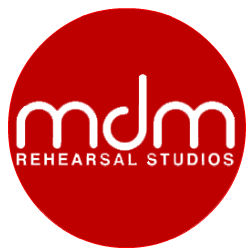Introduction to Music Rehearsal Studios
Music rehearsal studios are specialized spaces where musicians and bands can practice, compose, and perfect their art in a controlled environment. These studios are designed to provide an optimal acoustic setting that enhances the sound quality of instruments and vocals. Equipped with various musical equipment, such as amplifiers, microphones, and drum kits, rehearsal studios serve as a hub for creative collaboration and musical innovation.
The concept of a rehearsal studio is rooted in the need for a dedicated space where musicians can focus on their craft without distractions. Unlike home settings, where space and noise limitations can impede practice sessions, rehearsal studios offer a professional and conducive environment for intensive and productive rehearsals. These spaces are crucial for both amateur and professional musicians, providing the infrastructure to support music development at every level.
Importance of Rehearsal Studios for Musicians
Rehearsal studios play a pivotal role in the music industry. They offer a sanctuary where musicians can experiment with sounds, refine their skills, and prepare for live performances or recording sessions. The importance of these studios extends beyond just providing a practice venue; they are integral to the artistic process and development of musicians.
Firstly, rehearsal studios afford musicians the opportunity to practice at full volume, which is essential for bands and ensembles to hear how they sound together in a live setting. This is especially important for achieving a cohesive group performance, where timing, rhythm, and harmony are synchronized.
Secondly, these studios act as a breeding ground for creativity and collaboration. Musicians often find inspiration in the studio environment, leading to the creation of new material and innovative sound explorations. Additionally, the interaction with other artists and professionals in these spaces can foster networking and partnership opportunities, crucial for career advancement in the music industry.
Lastly, rehearsal studios provide a level of professionalism that can be crucial for aspiring musicians. They offer a space that is separate from everyday life, where artists can focus solely on their music. This professional setting can enhance productivity and motivate musicians to commit to a more disciplined rehearsal schedule.
Features of a Good Rehearsal Studio
Space and Acoustics
A good rehearsal studio must offer ample space to accommodate the size of any band or ensemble, along with their equipment. The layout should allow for easy movement and interaction among members. Acoustically, the studio should be well-treated to prevent sound leakage and ensure clear sound quality. This involves proper soundproofing and acoustic treatment, which minimizes echo and allows musicians to hear themselves and each other accurately.
Equipment and Facilities
The availability of high-quality, well-maintained equipment is crucial in a rehearsal studio. This includes a reliable PA system, microphones, amplifiers, drum kits, and possibly a selection of instruments for rental. Additionally, facilities like storage lockers for equipment, comfortable seating areas, and refreshment stations can make the rehearsal experience more pleasant and productive. Some studios also offer recording services, enabling bands to capture the essence of their rehearsals professionally.
Accessibility and Location
Location is a significant factor in choosing a rehearsal studio. It should be easily accessible by public transport and have ample parking for those who drive. Studios located in central areas can be more convenient, but those in quieter, less congested areas might offer larger spaces and better acoustics. Accessibility at all hours is also important, as many bands prefer to rehearse during evenings or weekends.
How to Choose the Right Rehearsal Studio
Identifying Your Needs
Before choosing a studio, musicians should assess their specific needs, including the type of music, the number of people in the band, and the equipment required. Understanding these needs helps in filtering studios that cater specifically to your musical genre or setup.
Comparing Costs and Amenities
Budget plays a significant role in studio selection. Musicians should compare the costs of different studios, considering not only the hourly rate but also the amenities provided. Some studios may offer lower rates but lack essential equipment or facilities, leading to additional expenses.
Checking Availability and Booking Policies
Availability can be a deciding factor, especially for bands with rigid schedules. It’s essential to check the studio’s booking policies, cancellation terms, and flexibility in scheduling. Studios that offer online booking and payment can provide added convenience.
Tips for Maximizing Your Time in the Studio
Planning Your Session
Effective planning is key to a successful rehearsal. Musicians should set clear objectives for each session, prioritize tasks, and allocate time accordingly. This might include focusing on specific songs, sections, or techniques that require attention.
Effective Communication with Studio Staff
Establishing a good relationship with studio staff can be beneficial. They can offer valuable insights, technical support, and even feedback on your music. Communicating your needs clearly can also ensure that the studio is prepared to meet your requirements, leading to a smoother rehearsal process.
Making the Most of Available Resources
Utilizing the studio’s resources fully can enhance the rehearsal experience. This includes taking advantage of any recording options to review performances later, using available equipment to experiment with different sounds, and tapping into the network of musicians and industry contacts that frequent the studio.
Conclusion and Future of Rehearsal Studios (300 words)
As we look to the future, the role of music rehearsal studios continues to evolve. Technological advancements are leading to better-equipped studios, offering high-quality recording options and even virtual reality experiences for remote collaboration. The trend towards more flexible, artist-friendly environments is also becoming apparent, with studios providing more than just a space to rehearse but also a community for musicians to thrive in.
The continued growth of the music industry and the increasing recognition of the importance of rehearsal spaces ensure that studios will remain a vital part of the musical landscape. They not only facilitate the practical aspect of music-making but also contribute to the creative and communal spirit that drives the art form forward.
